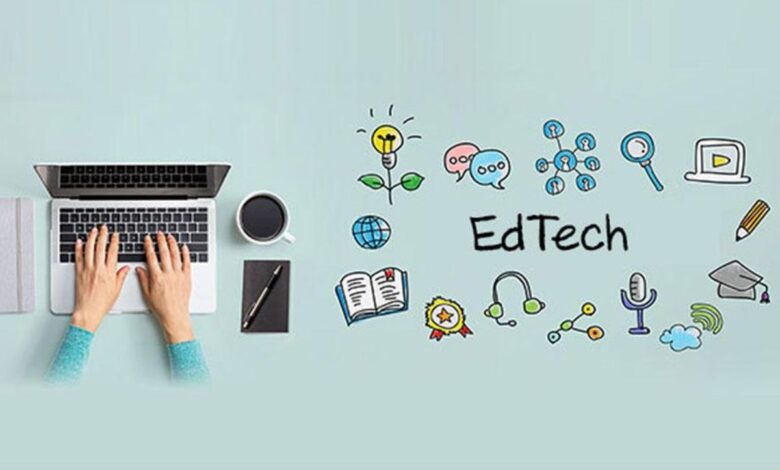In the ever-evolving world of technology, educational apps have become a cornerstone of modern learning. As we venture into 2024, these digital tools are not just changing how we learn; they’re revolutionizing it. In this exploration of the top educational apps, we’ll also glance at how innovation, like that found in slogan builder techniques, is vital in diverse fields.
The Impact of Technology on Education
The digital age has brought a significant shift in educational paradigms. Traditional chalk-and-talk methods are making way for interactive, tech-driven learning experiences. Apps now cater to a wide range of subjects and learning styles, making education more accessible and engaging than ever before. This shift isn’t just about convenience; it’s about creating an environment where learning is a dynamic, interactive experience.
App #1: Virtual Reality Classrooms
Imagine a history lesson where you can virtually visit ancient Rome or a science class that takes you inside a human cell. Virtual reality (VR) apps are making these immersive learning experiences possible. They provide a rich, interactive environment where students can explore and engage with content in ways previously unimaginable.
App #2: AI-Powered Language Learning
Language learning apps have been around for a while, but AI-powered versions are changing the game. These apps adapt to your learning pace, focus on areas you struggle with, and provide real-time feedback. It’s like having a personal language tutor in your pocket.
App #3: Interactive Coding Platforms
Coding is a crucial skill in today’s tech-driven world. Interactive coding apps have made learning this skill more accessible and engaging. These platforms often use gamification to teach programming concepts, making the learning process both fun and effective.
App #4: Customizable Learning Management Systems
Customizable learning management systems (LMS) are pivotal for both educators and learners. They allow for the creation of personalized learning paths, making it easier to cater to individual needs and learning styles. This personalization is crucial in a world where one-size-fits-all education is becoming obsolete.
App #5: Collaborative Study Tools
Collaboration is key in modern education, and there are apps designed to facilitate this. These tools allow students to work together on projects, share notes, and engage in discussions, fostering a community of learning. The importance of collaboration is highlighted in various fields, from developing effective marketing strategies to advancing scientific research.
App #6: Augmented Reality for Practical Learning
Augmented reality (AR) apps bring an extra layer to learning by superimposing digital information onto the real world. Imagine learning geography with interactive 3D maps or studying biology by observing augmented 3D models of organisms. These apps make abstract concepts tangible, significantly enhancing the learning experience.
Embracing Innovation in Education
As we delve into these groundbreaking apps, it’s clear that innovation in education is not just about flashy technology. It’s about creating tools that resonate with modern learners, making education a more inclusive, engaging, and effective process. Just like the innovative approaches in slogan writing, where creativity meets practicality, educational apps are at the forefront of a learning revolution.
In conclusion, the landscape of education is changing rapidly, driven by technological advancements and innovative applications. These six apps are just the tip of the iceberg in a sea of digital tools that are transforming how we learn and interact with information. As we continue to embrace these changes, the future of education looks brighter and more promising than ever.
The Role of Gamification in Learning
Gamification has emerged as a powerful tool in education, harnessing the engaging and addictive elements of games to enhance learning experiences. By integrating game design elements into educational content, these apps make learning more interactive and enjoyable. This approach has shown remarkable success in increasing motivation and engagement among learners, leading to higher retention rates and better understanding of complex concepts. It’s a testament to the idea that learning can, and should, be fun.
Personalized Learning: A New Horizon
One of the most significant advantages of modern educational apps is their ability to personalize learning experiences. These apps can analyze a student’s performance, identify strengths and weaknesses, and adapt the content accordingly. This personalized approach ensures that each learner receives the most relevant and effective instruction, tailored to their individual needs. It’s a far cry from the one-size-fits-all approach of traditional education and a step towards a more inclusive and effective learning environment.
Preparing for a Digital Future
As we move further into the digital age, the importance of being well-versed in technology cannot be overstated. Educational apps are not just teaching traditional subjects in a new way; they are also preparing students for a future where digital literacy is as essential as reading and writing. By familiarizing students with the latest technologies and digital tools, these apps are ensuring that the next generation is ready to navigate and succeed in an increasingly digital world.




